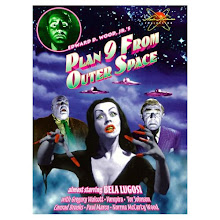Everyone in “Fargo” wants something; the simpler the want, the more likely it is that he or she will receive it. Ultimately, “Fargo” is a cautionary tale about the importance of being satisfied, and the perils that accompany dissatisfaction in its downward spiral into profound selfishness.
Mostly, the pure in heart prevail in this film, except for Jean, the pitiful kidnapped wife who suffers greatly. Margie wants to take care of her unborn baby, do good police work, be a faithful and supportive wife to Norm, and eat often. Scotty wants to go out for the hockey team. Jerry wants money (more on him in a minute). Carl wants money, sex, conversation, and the TV to get decent reception. Gaear wants pancakes, money and sex. Jean wants to be free. Wade wants to make more money, protect the money he has, and retrieve his daughter, etc.
Wholesome and despicable characters alike experience a common principle: The closer they are to being satisfied with what they have, the higher the probability that their simple wishes will be granted. After all, even the monstrous Gaear got his pancakes.
Gaear is not just a cold-blooded killer, he’s a beast. But since I’ve reduced him to an animal, I set him aside to claim that William H. Macy’s Jerry character is the vilest. Consider the depth of selfishness (regardless of his original motivation) for a husband who is willing to subject his wife to a fearful predicament such as kidnapping. Consider the kind of father who would let his son worry for his mother. Jerry is loathsome, and if we set the beastly killer aside, Jerry is the worst character.
Funny how the Coens take a crack at getting us to empathize with Jerry in the beginning of the film. But we stop relating as soon as we hear his nefarious scheme. The Coens raise the stakes, making this more interesting, by painting the wife, Jean, to be as pure and sweet as Snow White. When she is being abducted, we truly pity her. We have to decide who we’ll empathize with more, and I think most people choose Jean.
We know Jerry is scum when he walks into his house and sees the aftermath of his wife’s abduction. We expect him to grow a conscience and feel guilt, but no: He’s in the kitchen rehearsing the phone call to his father-in-law.
But Jerry is the tragic figure, of sorts, who ultimately delivers the parable. His happiness decreases exponentially as the film progresses in a direct correlation to the way his dissatisfaction increases.
Legendary film critic Stanley Kauffmann’s chief complaint with “Fargo” is its oddly shifting tone. It is a crime film, as well as a thriller, a drama and a dark comedy. Many people consider it a comedy. I consider it a crime drama with quirky tidbits. There are points where the accent is underscored too heavy-handedly, but otherwise, the changing tone doesn’t bother me. Still, Kauffman has a point: It’s weird to go from a comically awkward dinner meeting to pushing a guy’s foot through a wood chipper.
The greatest sequence in “Fargo” is the traffic stop / chase-down executions. Those scenes are masterfully constructed and executed. I think that clip should be shown at every police academy. The other remarkable scene is the money drop atop the snowy parking garage where Carl gets a bullet through the cheek and Wade is killed.
The film ends with a positive example of its moral: Norm is persuaded through Margie’s sweetness that his mallard duck photograph that made it onto a three-cent stamp was still a great accomplishment. The film closes triumphantly on their mutual contentment.
Excellent choice, Bill Barnes, but you cheated by picking a Coen brothers film.
Note: I technically posted this on Sunday, but I still have the blog set on mountain time.
Saturday, July 26, 2008
Subscribe to:
Post Comments (Atom)






























































1 comment:
It seems simple enough but it's so hard for us to really believe that joy and contentment comes from being satisfied with the good things you have, no matter how ordinary and small they may seem. Good points, and you're right about characters and their desires. One of the most important elements of a compelling story is characters with strong desires and Fargo's full of them, all working and scheming to get what they want. Never a dull moment.
Post a Comment